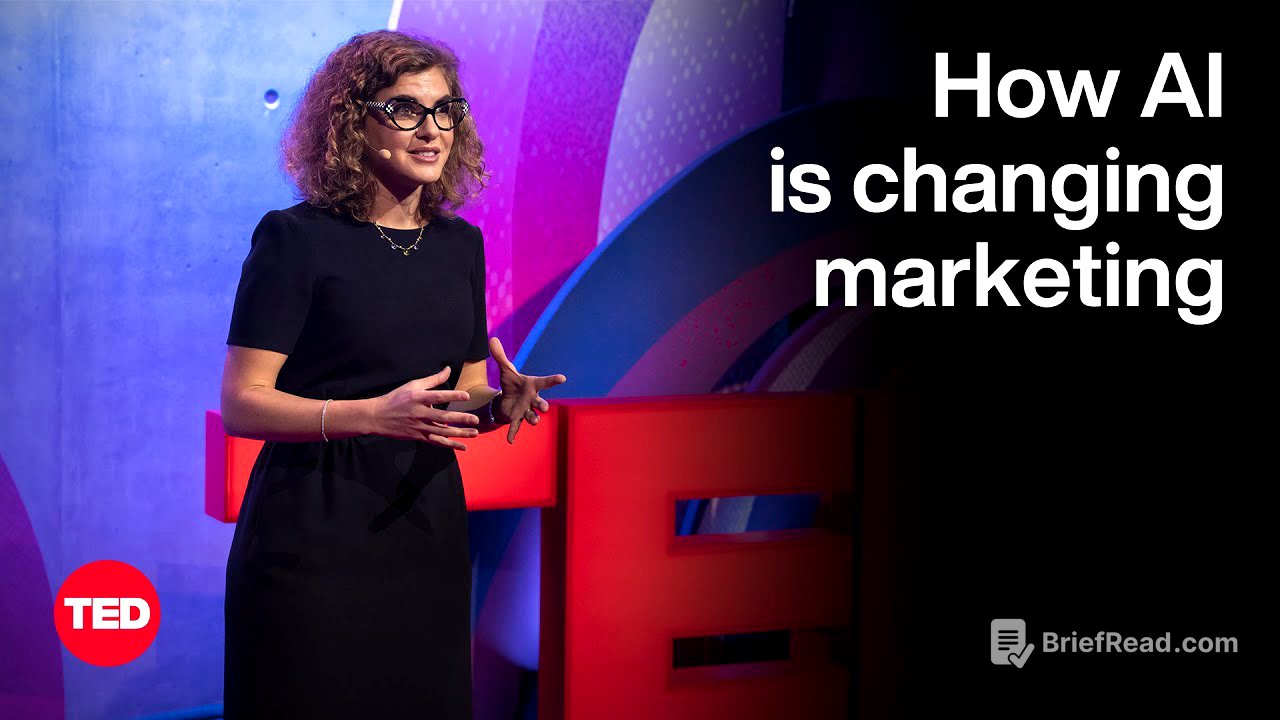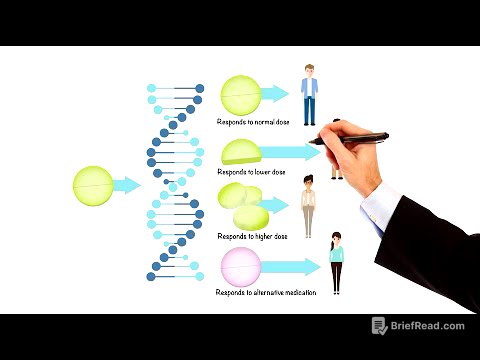TLDR;
The speaker discusses the impact of generative AI on marketing and productivity. They argue that while AI can significantly improve efficiency, it also carries the risk of content overload and homogenization. To navigate this, companies need to develop a "left-AI brain" by integrating data science and AI tools, while also protecting and nurturing their "right-brained" creative talent to maintain originality and brand identity. Marketers should focus on either enhancing their creative skills or specializing in AI and data analytics to thrive in this new landscape.
- Generative AI promises a productivity revolution in marketing, potentially increasing efficiency by up to 50%.
- Over-reliance on AI can lead to content overload and a lack of originality due to the homogenization of ideas.
- Companies should develop a "left-AI brain" by integrating data science and AI tools to predict outcomes and personalize content.
- Protecting and nurturing "right-brained" creative talent is crucial to maintaining brand identity and fostering innovation.
- Marketers should choose to specialize in either creative innovation or AI and data analytics to remain competitive.
The Promise of Productivity Revolution [0:05]
The speaker starts by reflecting on the introduction of word processors and spreadsheets 30 years ago, which promised a significant increase in leisure time and productivity. However, the reality is that people ended up working just as much, but with longer documents and more complex data to process. As generative AI becomes embedded in organizations, it is poised to be the next big productivity revolution, raising the question of how to effectively seize this opportunity.
Impact of Generative AI on Marketing [1:30]
Marketing, traditionally a creative, right-brained function focused on emotional connection and innovative messaging, has already evolved with digital marketing and analytics. Generative AI is now transforming the core of marketing activities. A study by Boston Consulting Group and Harvard found that ChatGPT can improve marketers' right-brain performance by 40%. The speaker posits that marketers will use this time to create more content and ideas.
The Risks of Content Overload and Homogenization [3:43]
While more content can lead to personalized experiences, there is a risk of content overload, where consumers feel chased by repetitive information. Because generative AI is trained on existing data, it can reduce the divergence of ideas, leading to a "great equalization of marketing." This homogenization is not a productive outcome.
Growing a "Left-AI Brain" [5:02]
To solve this, marketing functions need to develop a "left-AI brain" by strategically reskilling and reorganizing to integrate predictive AI tools into decision-making. This involves building teams of marketing data scientists and engineers to create solutions that unpack performance and predict outcomes. For example, a consumer goods company partnered to build tools that helped marketers predict sales outcomes and understand consumer behavior across channels, creating a virtuous feedback loop.
Thinking Outside the Box with Data [7:00]
Companies should avoid training algorithms solely on their current data to prevent being trapped in their existing market. For example, a brand strong with millennials needs to look beyond that demographic to succeed with Gen Z. The speaker advises thinking outside the direct ecosystem to find relevant data partners, such as financial institutions or insurance companies, to train algorithms and market to new consumer segments.
Protecting "Right-Brained" Talent [8:22]
Even with data and skills, there is a risk of over-relying on generative AI and losing brand identity. A Harvard study found that over-reliance on AI can decrease the divergence of ideas by 40%, stifling innovation. To combat this, companies need to identify and protect their true artists and innovators, reskilling them to use AI for inspiration and prototyping, but protecting them from using AI to generate original ideas.
Advice for Marketers [10:06]
The speaker concludes by advising marketers to cultivate their strengths. If they are creative innovators, they should focus on that superpower. If they are rational and fact-based, they should specialize in tech skills and predictive AI competencies. Every marketer needs to choose their brain to thrive in the evolving landscape.









